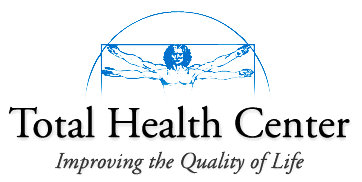General Understanding
1. What is functional medicine and how does it differ from conventional diabetes care?
Functional medicine is a root-cause, personalized approach to healthcare. It goes beyond symptom management and focuses on rebalancing the body to naturally regulate blood sugar.
Key differences:
-
Conventional = Medication-driven
-
Functional = Lifestyle-driven & individualized
2. Can functional medicine help reverse type 2 diabetes?
Yes, many experience remission or major improvement through diet, stress management, targeted supplements, and lifestyle changes.
3. Is it helpful for type 1 diabetes?
While it can’t reverse type 1, functional medicine improves quality of life, reduces complications, and supports overall health.
4. How are root causes identified?
Through advanced lab testing, personal history, and lifestyle analysis—including inflammation, insulin resistance, gut health, and nutrient levels.
5. What lab tests are used?
Beyond standard labs:
-
Fasting insulin, C-peptide
-
Inflammation markers (hs-CRP)
-
Nutrient panels (Vitamin D, B12, magnesium)
-
Gut health & food sensitivity testing
-
Thyroid function
-
Continuous glucose monitoring (CGM)
Nutrition & Lifestyle
6. What kind of diet is recommended?
Nutrient-dense, anti-inflammatory, whole-food-based. Tailored to the individual. May or may not include low-carb or ketogenic approaches.
7. How is gut health addressed?
The gut plays a central role in blood sugar and inflammation. Healing strategies include elimination diets, probiotics, and stool testing.
8. What role does stress play?
Chronic stress raises blood sugar. Functional medicine uses tools like mindfulness, adaptogens, and sleep optimization to manage it.
9. Is intermittent fasting used?
Yes, when appropriate. It boosts insulin sensitivity but must be personalized, especially for those on medication.
Medications & Supplements
10. Can I reduce or stop diabetes medications?
Possibly—with medical supervision. The goal is to correct imbalances, not just remove meds.
11. What supplements are commonly used?
Depends on the individual, but may include magnesium, berberine, omega-3s, chromium, and adaptogens.
12. Is it safe to combine with conventional care?
Yes, and often beneficial. Coordination between providers helps ensure safety (especially to avoid hypoglycemia).
Personalization & Prevention
13. How personalized is the treatment plan?
Highly personalized—based on labs, lifestyle, genetics, and root causes. No two plans are alike.
14. How long does it take to see results?
Some improvements happen within weeks, but deep healing can take months. It’s about sustainable change.
15. Can it prevent prediabetes from progressing?
Absolutely. It’s especially effective at this stage through diet, movement, stress, and sleep optimization.
16. How does it reduce diabetic complications?
By improving metabolic health, reducing inflammation, and optimizing nutrients to protect organs and prevent damage.
Support & Costs
17. Is it covered by insurance?
Often not, especially longer visits and advanced tests. Some services may qualify for HSA/FSA reimbursement.
18. What are the costs?
Costs are reviewed after an initial evaluation. Plans are tailored, and pricing is transparent before care begins.
Take the First Step Toward Better Health
Schedule a free consultation at Total Health VB to explore how Dr. Scott’s functional approach can help you reverse type 2 diabetes, regain energy, and reclaim control of your health.


